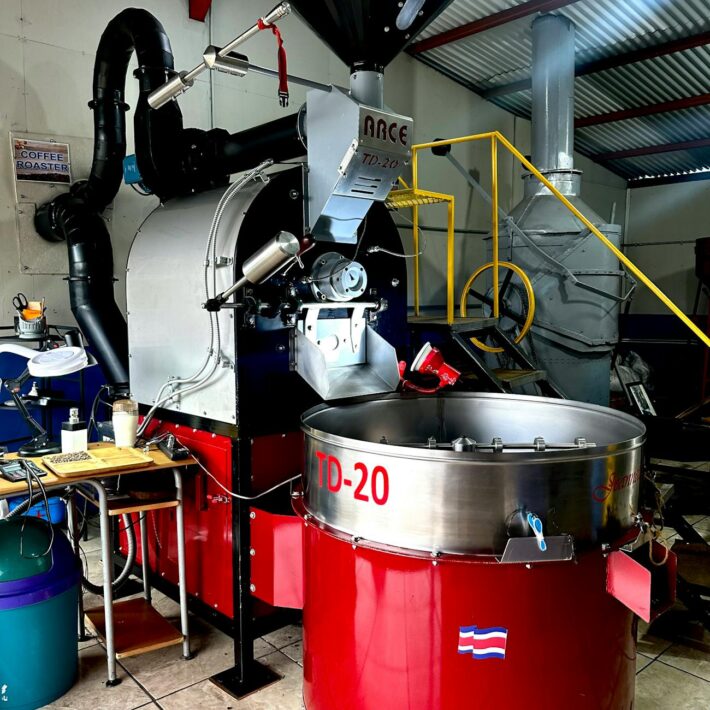Non-Food Crop Business Ideas to Start in 2024

Contents
Non-Food Crop Business Ideas to Start in 2024
As we navigate the evolving economic landscape, non-food crops are paving the way for innovative business opportunities. These crops encompass a wide range of plants that aren't used for food but serve essential roles in sectors like textiles, biofuels, and pharmaceuticals. Entrepreneurs willing to explore non-food crops can tap into niche markets that are increasingly focused on sustainability and eco-friendliness. Here’s a closer look into non-food crop business ideas ripe for the taking in 2024.
Overview of Non-Food Crops
Non-food crops are botanical selections used primarily for purposes other than consumption. These crops are cultivated for fiber, fuel, medicine, ornamental purposes, and even construction materials. Their significance in diverse industries is growing as consumers lean more towards sustainable practices and products.
Imagine the versatility: cotton for clothing, bamboo for building, and herbs for natural wellness. The demand patterns for these crops are evolving, and savvy business owners can capitalize on this trend by starting ventures in these sectors.
Top Non-Food Crop Business Ideas for 2024
With an array of options available, here are some compelling non-food crop business ideas to consider:
Textile Crops (Cotton, Hemp, Flax)
The increasing consumer preference for sustainable textiles offers an exciting opportunity for small business owners. Growing fibers like cotton, hemp, and flax can enable you to produce eco-friendly clothing and home textiles.
Hemp, in particular, has garnered attention for its rapid growth cycle and minimal need for pesticides. Starting a textile crop venture not only aligns with sustainability trends but also caters to a burgeoning market for environmentally conscious consumers.
Biofuel Crops (Soybeans, Canola, Algae)
As the world shifts toward renewable energy, biofuel crops become crucial. Soybeans, canola, and algae can be converted into biodiesel, promoting energy independence. By entering the biofuel crop sector, entrepreneurs can support the transition to sustainable energy.
Consider partnering with local producers or distribution networks to maximize your reach. This business model speaks volumes about innovation in agriculture while aligning with green energy goals.
Medicinal Herbs (Lavender, Chamomile, Echinacea)
Medicinal herbs are experiencing a resurgence as people seek natural remedies and wellness solutions. Not only can you cultivate popular herbs like lavender, chamomile, and echinacea, but you can also turn them into dried goods, teas, or essential oils.
The health benefits of these herbs appeal to a growing demographic interested in holistic health. Establish an online presence to market your products and connect with a wider audience of health enthusiasts.
Ornamental Plants (Succulents, Indoor Plants)
Home gardening has skyrocketed, especially post-pandemic, making ornamental plants a profitable niche. The popularity of low-maintenance plants like succulents and houseplants has led to significant market demand.
Consider offering unique varieties or DIY kits for gardening enthusiasts. Create an online store and leverage social media to showcase stunning plant arrangements, encouraging a community of plant lovers.
 Photo by Ono Kosuki
Photo by Ono Kosuki
Essential Oils (Lavender, Tea Tree, Peppermint)
The essential oil market is booming as consumers look for natural products for relaxation, aromatherapy, and skincare. Oils derived from lavender, tea tree, and peppermint are particularly sought after.
You can start by either cultivating the crops yourself or partnering with local organic farms. Use your branding skills to create a distinct image and online presence for your essential oil products.
Bioplastics (Corn Starch, Sugarcane)
In response to global plastic waste, bioplastics made from corn starch and sugarcane are emerging as viable alternatives. By cultivating crops for bioplastics, you can offer sustainable options to the packaging industries facing heavy criticism for plastic pollution.
Align your business strategies with eco-friendly aims, and collaborate with companies that prioritize sustainability in their products.
Bamboo Cultivation
Bamboo is a versatile plant used in construction, home goods, and textiles. It grows rapidly and strengthens the soil, making it environmentally beneficial.
Explore the construction market for sustainable building materials or tap into the decorative home goods sector by launching bamboo-based products.
Mushroom Farming
The gourmet mushroom market is expanding, driven by trends in plant-based diets and culinary experimentation. By starting a mushroom farming business, you can nurture a variety of fungi from gourmet options like shiitake to specialty strains.
Consider educational workshops or subscription boxes to maximize customer engagement and sales.
Natural Dyes (Indigo, Madder Root)
Natural dyes are regaining popularity in sustainable fashion with consumers pursuing organic methods over synthetic. Cultivating plants like indigo or madder root allows small business owners to produce vibrant, eco-friendly dyes.
Consider targeting clothing brands interested in ethical production. Creating workshops for DIY dyeing can further branch out your business offerings.
Cut Flowers (Roses, Sunflowers)
The floristry market remains robust, and cut flowers are always in demand for various events and daily use. Starting a business aimed at cultivating high-quality flowers offers ample opportunity.
The key is to maintain sustainable practices and potentially explore subscriptions for regular customers. Being creative with packaging and branding can enhance your market presence significantly.
Plant-Based Textiles (Tencel, Lyocell)
Innovative textiles made from trees, such as Tencel and Lyocell, have grown in demand as consumers prioritize sustainability. Explore growing ventures that provide fibers for these advanced materials, which are biodegradable and produced with minimal environmental impact.
Sustainable Forestry (Timber, Non-Timber Products)
For the environmentally conscious entrepreneur, entering sustainable forestry offers pathways to responsible tree management. You can focus on harvesting timber while also exploring non-timber products such as resin, nuts, or mushrooms.
Starting Your Non-Food Crop Business
Market Research and Planning
Your first step should be thorough market research. Understanding what products are in demand can significantly recreate your business approach. Identify niches where competition is minimal or where you can provide unique solutions.
Brand Identity Development
To stand out in a competitive landscape, creating a strong brand identity is essential. This goes beyond just a great logo; it’s about crafting a story and a unique voice that resonates with your target audience. Discover more about effective logo design practices to make your mark. A well-defined identity can help you connect with customers emotionally.
Sourcing and Sustainability Practices
As you develop your non-food crop business, prioritize sustainable sourcing practices. Customers today are keen on supporting brands that contribute positively to the environment, making sustainability not just a buzzword, but a line item in your business strategy.
Challenges and Solutions
Entering the non-food crop sector comes with challenges including variable market demands, seasonal fluctuations, and sustainable practice adherence. Building flexibility into your business plan can help navigate these ups and downs. Adaptable approaches to product offerings and a robust customer relationship strategy can help you maintain stability despite challenges.
Conclusion
The realm of non-food crops presents a rich tableau of opportunities for aspiring business owners. With a commitment to sustainability and by leveraging market trends, your non-food crop business can thrive in 2024. Explore these ideas further, assess what resonates most with your ambitions, and take the leap into this exciting sector! The potential for innovation is limitless, so grab your opportunity and stem towards success!

As our Chief SEO & Branding Strategist, Robert Ellison is a digital marketing visionary with over 25 years of experience transforming brands through smart, data-driven SEO and impactful storytelling. Known for his expertise in aligning technical SEO with authentic brand narratives, he leads our team in creating strategies that boost search rankings while building strong, sustainable brand identities. A trusted advisor and frequent industry speaker, Robert combines deep technical knowledge with creative insight, helping our clients not only reach the top of search results but also genuinely connect with their audiences.








